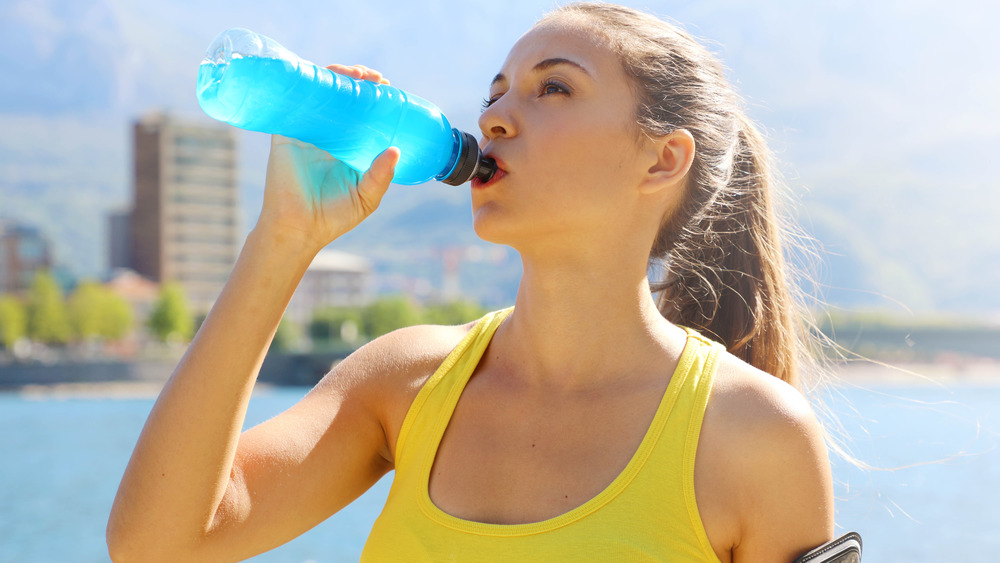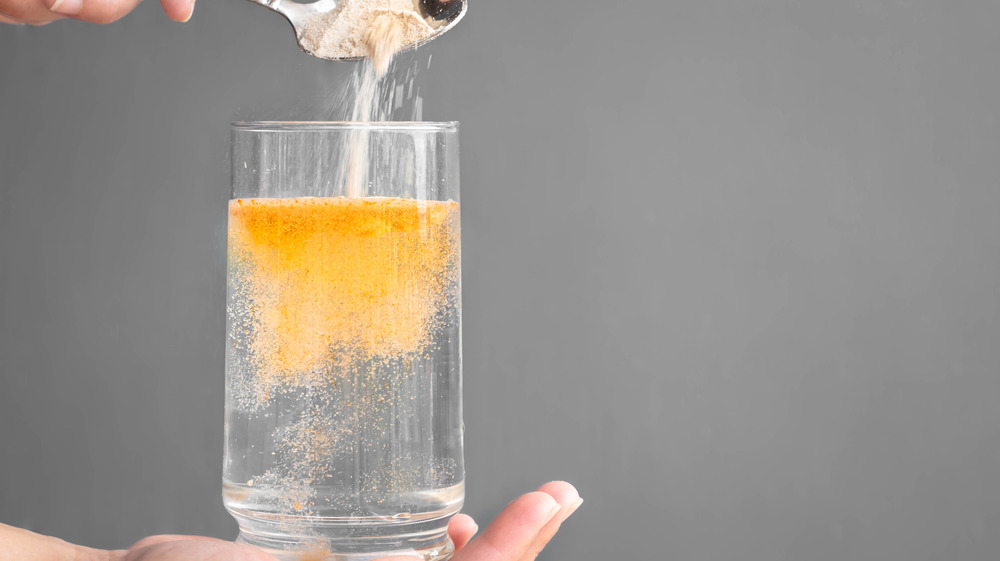What Really Happens When You Don't Get Enough Electrolytes
You might think that electrolytes are only important for athletes, but they're critical components to everyday health as well. When your body is lacking in electrolytes — calcium, potassium, sodium and magnesium — it's like your electrical circuitboard is sending the wrong signals. That's because electrolytes are tasked with sending signals between your brain and the rest of your body, and if you allow them to become depleted, usually due to too much sweating, vomiting, or diarrhea in conjunction with a lack of proper hydration and electrolyte repletion, you're potentially putting your body in a life-threatening situation (via Livestrong).
Electrolytes are responsible for hundreds of processes within the body, from balancing pH levels to contracting muscles to regulating hydration status. When they're not in balance, you can feel fatigue, have a fast or irregular heartbeat, experience tingling and feelings of confusion, suffer from muscle cramping and even convulsions, or simply have a headache (via Healthline). That's why a healthy diet — and paying attention to how you feel before there's a problem — is so important for everyone, not just athletes losing a lot of sodium in their sweat (via Livestrong).
How do you get enough electrolytes?
When you're low on electrolytes, your body struggles to send and receive those signals, which is why things like headaches and muscle spasms can occur. Each electrolyte has a specific job in the body. For instance, calcium aids bone formation and blood clotting, while potassium regulates fluid balance and muscle contractions. You need all of the electrolytes working in harmony for optimized bodily function (via Pulse Centers).
Fortunately, you don't need to supplement to do so: You just need to make sure that your diet provides whole food sources of each. Most Americans don't need to supplement with sodium, since the typical American diet is often too high in sodium already. Craving salty food may be a sign that you need a bit more salt in your diet, though. And you should ensure that you're also getting plenty of potassium, magnesium, and calcium through your food as well. Potassium can be found in avocado and bananas, while magnesium is rich in most seeds and nuts, and calcium can be found in dairy products and dark leafy greens. If you're a serious athlete who's regularly sweating hard during long training sessions, you may also need to supplement with a sport-specific electrolyte powder, tab, or drink (via Healthline).


